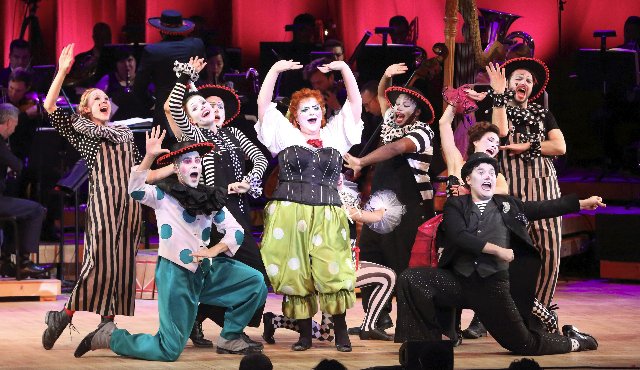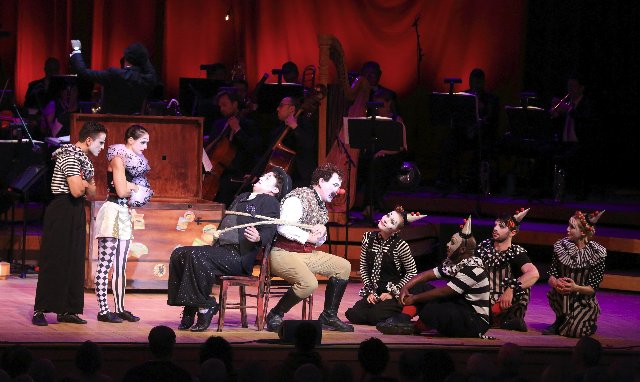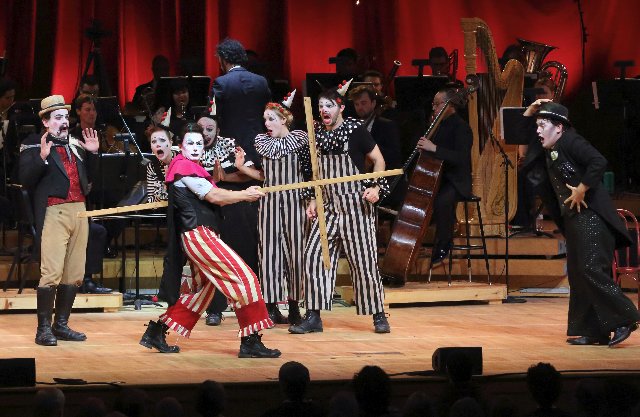The Knights Perform Candide
Bernstein's Zany Comedic Operetta
By: Philip S. Kampe - Aug 23, 2018
Leonard Bernstein’s Candide (1956)
The Knights
Eric Jacobson, conductor
Sharleen Joynt, soprano (Cunegonde)
Miles Mykkanen, tenor (Candide)
Alex Monsoori, tenor (Baron/Governor/Vanderdendur/Ragotski)
Alexander Elliott, baritone (Maximilian/Grand Inquisitor)
Courtney Lopes, dancer
John Heginbotham, choreographer
Aloson Moritz, stage director
Aaron Copp, lighting designer
Can we learn lessons from Candide? It's easy to put a political banner on Voltaire’s work but let’s not. The message is quite clear: Don’t quit and keep going. You must hang in there because your world is the best of all possible worlds .It’s the only one that we have. Sure, it is full of injustices, dilemmas and challenges. We survive and make the best of it. Not just accept reality we must improve it.
Candide is a light opera or a comic operetta. Published in 1759, the novella was written as an attack on the philosopher Gottfried Wilhelm (von) Leibniz by the satirist Voltaire. The thesis of Leibniz was optimism. That entailed trivializing human suffering and maintained that we must work to improve reality. In essence, ‘We must cultivate our garden.’
That absured notion was red meat for Voltaire as horrendous things happen to good people. The Lisbon earthquake of 1755 was a catastrophic event which Voltaire used to unhinge the "optimism" of Leibniz.
Leonard Bernstein’s Candide (lyrics by Richard Wilbur) premiered in 1956 on Broadway. It was a flop with just 73 performances. The popularity of Bernstein’s score later emerged and was has been produced and performed by orchestras.
The diversity of the musical styles that the music contains makes the staging of the play challenging. The light opera may be considered a musical comedy, as was the Tanglewood performance. Operatic voices for Candide and and his love interest, Cunegonde, were required, beyond that however, anything goes.
The plot folloows Candide’s ill-advised adventures in imperial Europe. They are followed by escapades in South America. His mantra, thanks to his teacher Professon Pangloss, is ‘ All for the best in this best of all possible worlds.’
Candide is tested throughout the operetta, as is Cunegonde. She fares for the worse when separated from Candide and comes to life once they are reunited. Although raped and mamed, through many misadventures, ever the cockeyed optimist, Candide remains faithful to his fiance.
The fascination of Tanglewood's production combines a zany opera with familiar songs. They include such gems as ‘Glitter and Be Gay’ and ‘Make Our Garden Grow.’
This is a return peformance of The Knights, a Brooklyn based orchestra, at Tanglewood.



